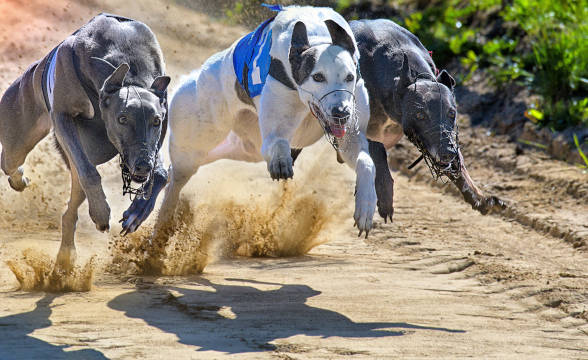Campaigners in Scotland are renewing calls to ban greyhound racing in the country, citing the detrimental impact of the races on animal health and the lack of proper control, Sky News reported.
Doping of Animals and Lack of Regulation
Activists from Scotland Against Greyhound Exploitation (SAGE) referred to the Scottish Parliament’s Rural Affairs, Islands and Natural Environment Committee to issue a complete ban on greyhound racing due to the lack of regulation to protect the animals from injuries and doping.
According to them, drug testing is conducted at the country’s regulated track Shawfield Stadium in Rutherglen near Glasgow but in less than 2% of the races.
Tests at the racetrack in the period from 2018 to 2019 revealed worrying results as 13 of the dogs were found positive for doping, with five of them with Class A drug cocaine but doping was often not revealed by the Greyhound Board of Great Britain (GBGB) for several months and was going unreported to police and the Scottish Society for Prevention of Cruelty to Animals (SSPCA), signaling non-functioning regulation.
According to GBGB’s statistics, there were more than 3,000 deaths and an estimated 18,345 dogs injured from racing in the UK between 2017 and 2020 but as there was no regulation at Scotland’s other greyhound racetrack, Thornton in Kirkcaldy, Fife, the real death toll of dogs was higher. The lack of a vet at the racetrack also means if a dog suffers a catastrophic injury, it cannot be euthanized immediately.
The petition to put an end for good to greyhound racing in Scotland received more than 130,000 signatures and was backed by Scottish Greens MSP Mark Ruskell who openly stated the greyhound racing industry was “beyond reform.”
Ruskell further claimed that the duty placed on animal owners under The Animal Welfare Act 2006 to protect their animals from suffering did not extend far enough to prevent harm caused to greyhounds.
Animal Welfare Is ‘Paramount’
GBGB’s chief executive Mark Bird outlined greyhounds require much more in terms of protection as compared to domestic dogs in the UK and stated that the welfare of the animals is a paramount objective in licensed greyhound racing.
He further noted that each greyhound is being checked by a vet before and after the race and their trainers’ kennels are being subjected to regular “inspections by vets, stipendiary stewards and independent auditors” to ensure compliance with welfare standards.
There are also strict anti-doping policies in place and any violations could result in a lifetime ban for trainers while all instances are being reported to the appropriate authorities, Bird concluded.
Members of the committee will seek clarity on regulation enforcement from relevant stakeholders, including the Animal Welfare Commission, before taking the petition forward.



